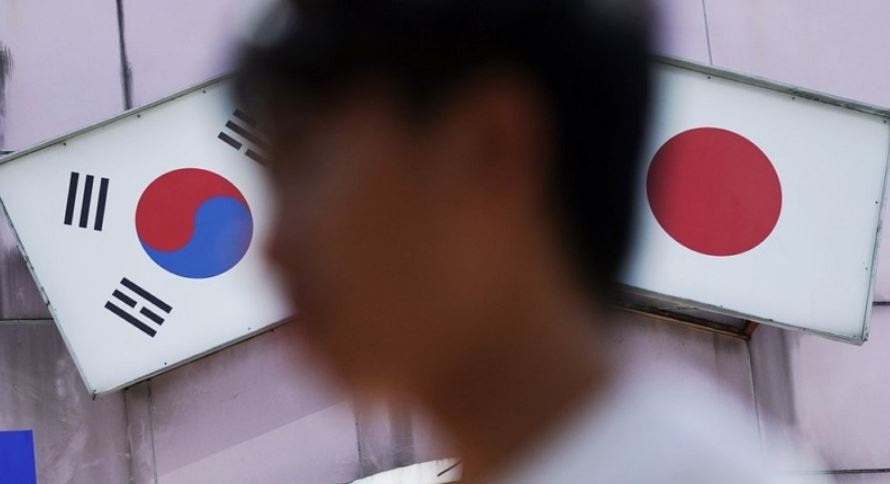Japan lifts chip material export curbs against S. Korea ahead of trilateral summit
By YonhapPublished : Dec. 20, 2019 - 19:48
Japan on Friday partially lifted curbs on exports to South Korea of a chip material, one of three products subject to recent restrictions, in an apparent goodwill gesture ahead of a trilateral summit with Seoul and Beijing next week.
But Seoul said that while it represents partial progress, it falls short of being a fundamental solution to the neighboring country's export curbs.

Under the move, Japan will ease regulations on exports of photoresist to South Korea with limited regulations, Japan's Ministry of Economy, Trade and Industry said. Photoresist is used in the production of semiconductors.
The move came ahead of a planned trade ministers' meeting involving South Korea, China and Japan slated for Sunday in Beijing, and also ahead of those countries' trilateral summit in the southwestern Chinese city of Chengdu.
South Korea's Trade, Industry and Energy Minister Sung Yun-mo will meet China's Commerce Minister Zhong Shan and Japan's Economy and Trade Minister Hiroshi Kajiyama for talks on how to accelerate regional free trade negotiations.
It is not clear, however, whether Seoul and Tokyo will meet bilaterally amid tensions over Japan's export curbs targeting South Korea.
Economic ties between Seoul and Tokyo have been facing an unprecedented deadlock since Japan imposed restrictions on exports to Seoul of three key industrial materials critical for South Korea's chip and display industries in July. Japan later removed Seoul from its list of trusted trading partners.
It was initially thought that Japan's actions would have an impact on local industry due to South Korea's heavy dependence on the three materials controlled by Tokyo -- photoresist, etching gas and fluorinated polyimide.
Fluorine polyimide is used to make flexible organic light-emitting diode displays; photoresist is a thin layer used to transfer a circuit pattern to a semiconductor substrate; and etching gas is needed in the semiconductor fabrication process.
"Although Japan's move is considered progress in the dispute, we still believe that we need more fundamental solutions to the problem," an official from the presidential office of Cheong Wa Dae said.
Tokyo cited South Korea's alleged lax export control system for sensitive materials that can be diverted for military use as the reason behind its export restrictions.
Seoul regards the measures as a retaliation against the country's Supreme Court rulings ordering Japanese firms to provide compensation for Koreans forced into labor during Japan's 1910-45 colonial rule of the Korean Peninsula.
South Korea, whose main export products include semiconductors and smartphones, relied on Japan for more than 90 percent of its supplies of photoresist and fluorine polyimide and for 44 percent of its etching gas over the January-May period, according to the Korea International Trade Association.
Amid the deadlock, the two countries have been making efforts to end the trade war, which could potentially hurt both sides' economies as well as the global supply chain.
Last month, South Korea decided to conditionally suspend the termination of the General Security of Military Information Agreement with Japan as a move toward settling the trade row.
It also promised to suspend its ongoing complaint process at the World Trade Organization.
Earlier this month, South Korea and Japan agreed to continue talks to resolve their monthslong trade row, sharing what they called an "expanded mutual understanding" of each other's export control system during a meeting in Tokyo. (Yonhap)










![[Hello India] Hyundai Motor vows to boost 'clean mobility' in India](http://res.heraldm.com/phpwas/restmb_idxmake.php?idx=644&simg=/content/image/2024/04/25/20240425050672_0.jpg&u=)









